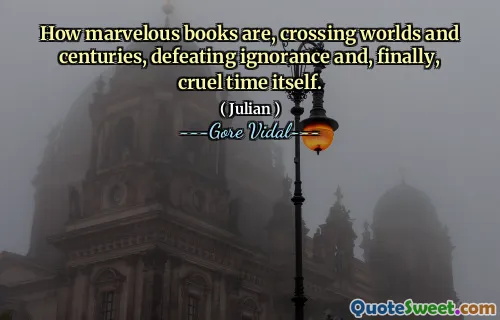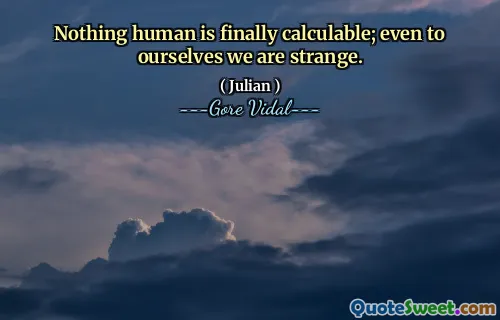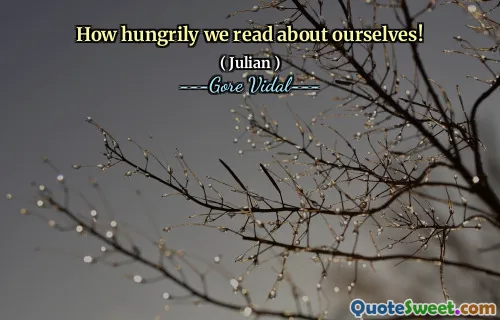
But like so many others nowadays, poor Julian wanted to believe that man's life is profoundly more significant than it is. His sickness was the sickness of our age. We want so much not to be extinguished at the end that we will go to any length to make conjuror-tricks for one another simply to obscure the bitter, secret knowledge that it is our fate not to be.
In Gore Vidal's "Julian," the character Julian struggles with a deep sense of existential crisis, reflecting a prevalent issue in modern society. Many individuals share his desire to find profound meaning in life, believing that their existence holds more significance than it truly does. This yearning stems from a fear of mortality and the inevitable end that awaits all, prompting people to engage in elaborate illusions and distractions.
The passage highlights a collective neurosis of contemporary humanity: the unwillingness to face the harsh realities of life and death. Instead of confronting the truth that life may simply end without grand legacy, individuals prefer to create false narratives that provide a sense of purpose. Vidal critiques this tendency, illustrating how it can lead to a universal discontent as society grapples with the weight of its own existence.










